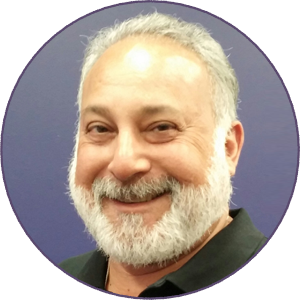Growing up a minority in Utah, Dr. Carlos Garcia was steadfast in his desire to pursue a career in the “hardest damn thing to get into” cardiothoracic surgery. And being able to do this even with the additional hurdles of being a Hispanic medical student in predominantly white Utah made it all the more of an accomplishment for him.
“In a way, becoming a physician in a very challenging specialty was an undeniable success, but it also was a specialty I loved,” he says. “I graduated medical school in 1978, and back in the day it was the ultimate achievement.”
After working in private practice in Tacoma, Washington, for a large chunk of his early career, Dr. Garcia and his partners found that they weren’t recouping in income what they were putting into it in time and administrative tasks. The overhead, the clinical staff salaries, and the hours they spent working – whether it be with patients or paperwork – left little room for a stable, reliable salary.
“Really, I was swept up in the early phases of what got a lot of physicians into employed positions,” he shares. “We were working very hard and busy as ever. We were paying our perfusionists, our clinical staff, but we weren’t getting paid ourselves very often.”
At that point in his career he had come into contact with a few locum tenens providers, but was slightly wary of their reasons for working locums rather than commit to a permanent position.
“It almost seemed like there was some sort of problem,” he says. “The standard in the industry and in medicine in general is you went into a private practice after training and stayed there until you retired.”
“And believe me, I would have been happy to do that. But the world of medicine was changing.”
Because of this evolution of the mindset for the trajectory of a physician’s career, and the changing world of medicine, the possibility of working locum tenens always remained at the back of his mind. So a few years later he periodically took some locums assignments, though he ended up taking a permanent position, where he remained for seven years.
The priority of family and the flexibility of locum tenens
But around this time Dr. Garcia found himself living away from his family, so he decided that this was the opportune time to start working locums full time.
“At the end of my time working a permanent position, my family had been living separately from me and I just wanted to get control over my schedule again,” he says. “That was the reason at that point I came back to locums. Around this time, locums had become a more widely accepted way to practice medicine.”
Thirty-eight years into his career in medicine, Dr. Garcia feels that had it not been for his move to full-time locum tenens, he would probably have found himself in full-time retirement.
“I think if I were in a permanent position somewhere I might have actually retired by now, simply because I know what a compromise that would be for my schedule, time-commitment wise,” he says. “Also, whenever I think about retiring, it certainly will be easier as a locums than it would be in a permanent position.”
The importance of adaptability while being a locums provider – and the ultimate rewards
When asked what he would say to a fellow colleague if they wanted to know more about working locum tenens, Dr. Garcia says there’s always that initial trepidation when stepping into a new role in a different facility and possibly a new city.
“As long as they’re open to change and new settings, they’ll love it,” he shares. “I tell them to take an assignment, and if they don’t like it, they don’t have to commit.”

Though he says there are multitudes of positives, like seeing the different ways other physicians practice medicine and getting to travel to new locations and hospitals, his least favorite part of working locums is all the traveling, since he usually takes assignments out of state.
“Some of the places I’ve chosen assignments in that need locums aren’t in the major metropolitan areas, so I’m flying in little airplanes, almost like I’m traveling in a sewer tube,” he jokes.
With the schedule flexibility locum tenens allows him, Dr. Garcia has the freedom to spend his time pursuing his passion for fly fishing. He was also able to create a schedule where he had the time to travel and attend his daughter’s graduation.
“That would have been impossible in my last job at the University of Cleveland,” he says. “I came right up against holiday schedules and taking the time off was tough, very tough. I ended up working quite a few holidays. Locum tenens allows me the flexibility in my schedule to just say, ‘I won’t be available for this.’”
At the moment, the word “retirement” isn’t in his vocabulary; he’s enjoying the schedule he’s set for himself and his ability to learn new things at each new assignment, especially with the demands of being a cardiothoracic surgeon.
“I’m 65 this year, but I’m not really thinking of retirement simply because I’m enjoying myself. I often feel much more appreciated. It makes me feel pretty good.”



